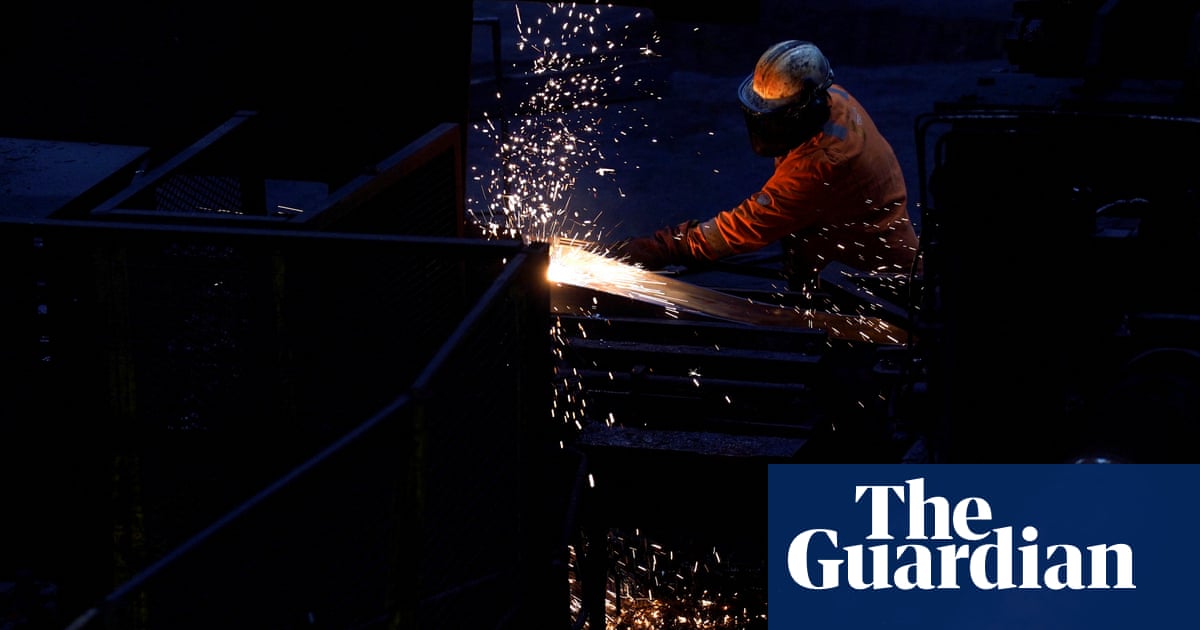By next weekend, a cargo ship carrying more than 50,000 tonnes of coking coal from Australia will dock at Immingham. In other circumstances, its arrival would be unremarkable. But the moment Navios Alegria reaches the Lincolnshire port will be the culmination of the government’s high-wire act to keep the UK’s last steel furnaces running.
MPs were recalled from their Easter recess last Saturday to pass emergency legislation handing the government control over British Steel, whichoperates Britain’s last two blast furnacescapable of producing steel from scratch using coke and iron ore.
Long-running talks between the government and Jingye Group, the Chinese conglomerate that owns the Scunthorpe plant, broke down 10 days ago after executives declined an offer of £500m to keep the furnaces running. Ministers became convinced that Jingye bosses were determined to shut them down come what may.
Senior figures in Downing Street and Whitehall believe the company’s decisions were motivated bya desire in Beijingto make the UK a dumping ground for Chinese steel exports, particularly inthe context of Donald Trump’s tariffs.
“It became clear that when they saw the writing was on the wall they tried to shut down our steelmaking,” one senior official told colleagues. Another senior government source told the Guardian: “They decided to shut it down because China needs to dump its steel somewhere.”Jingye has arguedthe plant is no longer financially sustainable and running a loss of £700,000 a day.
Keir Starmer asked to receive hourly updates between his engagements on Thursday of last weekafter the talks with Jingye broke down. In the early hours of Friday, he was informed that ownership of the cargo on Navios Alegria had been transferred from British Steel to Jingye – a sign that the Chinese company intended to sell off the coal needed to keep the blast furnace running. Unions have claimed that Jingye had turned away the Amstel Tiger, a second cargo ship that was carrying coking coal to Scunthorpe and had set off from the US.
The prime minister convened cabinet at 9am on Friday and told ministers they would gather again for a 15-minute meeting at lunchtime. Aides say he was concerned about the prospect of steelworkers being caught between the government and Jingye’s orders, and that he asked the attorney general, Richard Hermer, to look at how workers defying Jingye bosses could be protected in that scenario. He also resolved torecall parliament on Saturdayand travel to Scunthorpe in a show of support.
The other overriding concern in No 10 was ensuring the delivery of the Navios Alegria’s cargo. Starmer was convinced the move to transfer ownership of it away fromBritish Steelwas illegal. While government lawyers pored over the details, aides drew up a plan to divert the vessel – which was travelling up the coast of Liberia and was due to refuel in Spain – to Gibraltar, on the basis that if it docked at a British port its cargo could be seized.
This gambit, which would have required some diplomatic manoeuvring with Spanish authorities, was nicknamed “Steelback” by aides – a reference to the nickname of the British army regiment that received battle honours during thesiege of Gibraltar in 1779.
Officials also drew up contingency plans to source coking coal from other suppliers such as commodity traders andTata Steel. By Saturday morning when Jonathan Reynolds, the business secretary, was addressing the Commons everything hung in the balance.
“Commodities traders were telling us they couldn’t get there on time,” a senior No 10 source said. “No one knew what would happen with the Liberian vessel [Navios Alegria]. We were on edge.” There were suggestions that the navy would need to be deployed to escort shipments of coking coal to Immingham.
Sign up toFirst Edition
Our morning email breaks down the key stories of the day, telling you what’s happening and why it matters
after newsletter promotion
A breakthrough came on Saturday afternoon in the unlikely form of a legal wheeze. Government lawyers overseen by Hermer concluded that the person who had signed away the Navios Alegria cargo did not have the relevant permissions to do so. This discovery – which meant the cargo legally belonged to British Steel and would therefore soon be under the government’s control – shifted the mood in Downing Street. Starmer was in Scunthorpe when he was given the news. At 6pm, the government’s emergency billreceived royal assentand gave ministers powers to exercise control over British Steel.
On Tuesday, shipments of coking coal and iron ore from the US completed theircomparatively uneventful journey to Imminghamafter the government settled the payment to deliver the supplies needed to keep the furnaces running.
Downing Street figures say they took the decisions they did because amid an escalating global trade war and European rearmament, producing steel in the UK is a matter of national security. Officials believe the crisis may lead to a reassessment of what is deemed critical national infrastructure. Steel is not, but unions have called for a rethink in the wake of Trump’s 25% tariffs on steel imports.
Serious questions remain over the future of the Scunthorpe plant and the beleaguered British steel industry. The two blast furnaces at Scunthorpe are nearing the end of their lives. The cleaner electric arc furnaces that are slated to replace them would not produce steel from scratch, but instead smelt existing steel scrap. The government is due to publish a steel strategy within weeks, including a verdict on whether the UK needs to produce virgin steel.
In the meantime, the government is looking for private sector investment to avoid the need to nationalise British Steel in the longer term – a route the Conservatives were keen to avoid in 2019 whenJingye was the only bidder. If no others emerge this year, ministers will face mounting questions about the cost to the taxpayer.
